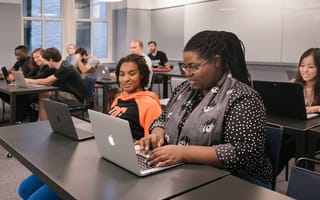You don’t always have to have a tech background to work in tech, and these women prove it. While some of the women featured below actively pursued roles in the field, others found themselves here a bit more serendipitously — yet they’re all happy to be here now. Here are the stories of how six professionals ended up in Austin tech.
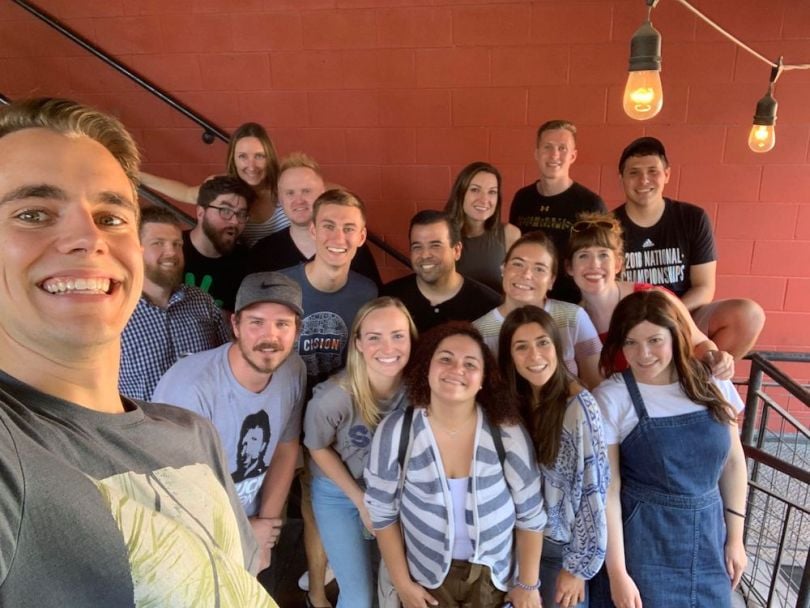
A serial entrepreneur with a doctorate in communication technology, Cision’s VP of Communications, Content and Brand Jenn Deering Davis’s work has helped create an entire new industry using data to tell stories.
Tell us a bit about your career journey. Why did you decide to pursue a career in tech?
My first internship was in marketing at a dot-com company. That company failed miserably, but I got a taste for the tech industry and joined a few college friends to build our own startup. Later, I got my doctorate in communication technology to learn everything I could about the societal impacts of technology. But ultimately I decided I wanted to be the one creating the tech, not the one studying it, and in 2008 my co-founder and I started Union Metrics. We sold UM to TrendKite last summer, and then TrendKite was acquired by Cision earlier this year. Two acquisitions in seven months!
The thing I find most satisfying is being able to look back at my career and see how my work helped contribute to shaping an entire industry.”
What do you love most about your tech career? Any specific aspects of your job that really make you light up?
I love how things are constantly evolving, and how the job I do in 10 years will look different from the job I do today. But the thing I find most satisfying is being able to look back at my career and see how my work helped contribute to shaping an entire industry. It’s pretty amazing to be part of creating something totally new.
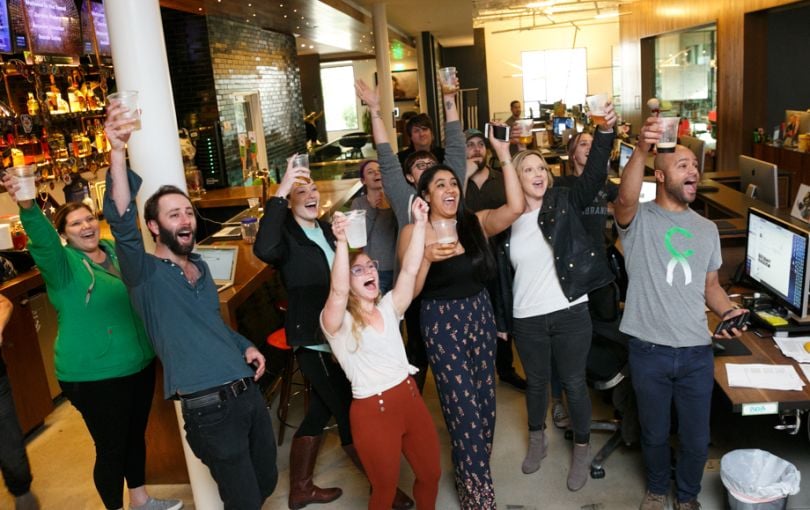
Gillian Wilson didn’t go to school to become an expert in human resources. In fact, it wasn’t until after earning two art degrees that she capitalized on her unique approach to problem solving. Now, she applies her puzzle-oriented focus to address employee challenges as Chive Media Group’s and Atmosphere’s VP of HR.
Tell us a bit about your career journey. Why did you decide to pursue a career in tech?
I’ve always learned differently and looked at the world as a series of separate puzzles to solve. Without realizing what that meant, I ultimately earned two degrees in ‘looking’ — a bachelor’s degree in art history and a master’s in art education. Both taught me to continually figure out those puzzles and break them apart in different ways. I stumbled upon HR in tech after realizing my training and ability to see the world from different angles served as a strategic advantage in solving employee problems. I love helping people, and I really love helping people who think abstractly or through a unique lens. Now, I help tech pros realize that they already know the answers to most of the problems they’re facing.
My training and ability to see the world from different angles served as a strategic advantage in solving employee problems.”
What do you love most about your tech career? Any specific aspects of your job that really make you light up?
As part of the tech startup community and a VP at Atmosphere, I love helping other companies who reach out and ask our team to vet out new products. These young companies are on the cutting edge of media or AI, and I focus on companies leveraging new technology to help their employees. We get to test out some really cool products, and companies actually value our opinions. It's pretty humbling. I love helping people, and I wouldn't change what I do for the world.
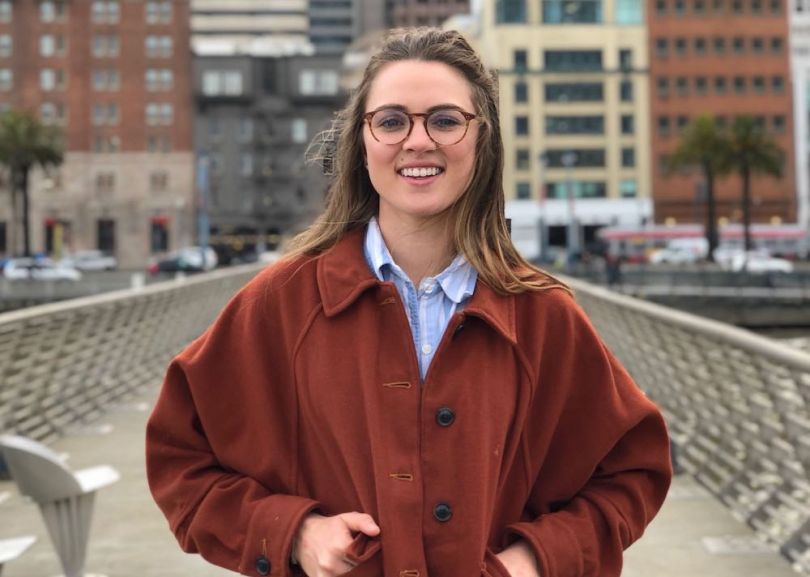
From cotton and tobacco farms to oil and gas, when RunTitle Senior Account Executive Sydney Smith moved from the East Coast to the Southwest, she also moved industries. Smith discussed with us what it’s like to be a woman in a male-dominated field, and how her background in advertising has translated well into sales for the mineral ownership database.
Tell us a bit about your career journey. Why did you decide to pursue a career in tech?
I originally worked in advertising and marketing all through college, with the occasional shift at a coffee shop. My option to jump into tech occurred after reading about the opportunity to join the RunTitle team as a sales rep, where I could make an impact in a business that has historically been comprised of old money and predominantly male-led businesses. This was a large shift in industries for me, where the East Coast never spoke about oil and gas, but rather tobacco and cotton farms. It allowed me to use my skills in relationship-building and advertising to learn how to sell myself and the business model to help build a strong book of business.
The biggest win is when they hear a woman's voice in a male dominated industry; it allows for a huge growth in cross-business relationship building.”
What do you love most about your tech career? Any specific aspects of your job that really make you light up?
What I love most about my career in tech is that I have the opportunity to break into a business that has yet to feel tech’s impact. When we talk to clients, they are genuinely shocked when we get on the phone and talk about our business model and how it can impact them and their assets. My favorite aspect of my job is when people ask me about it; when I shake hands at events and they realize the impact a 21st century idea can have on an industry established and developed in the 1800s. The biggest win is when they hear a woman's voice in a male dominated industry; it allows for a huge growth in cross-business relationship building.
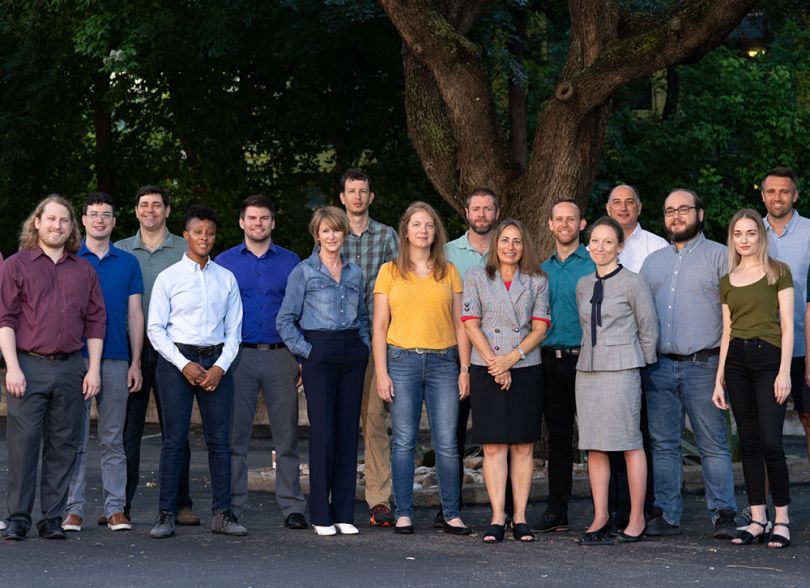
Iona Olive is a former teacher-turned MATLAB university lecturer-turned quality assurance engineer. Today she supports LeanDNA by ensuring their tools make operations more efficient for their customers.
Tell us a bit about your career journey. Why did you decide to pursue a career in tech?
My path to tech wasn’t straightforward. It took me through a bachelor’s and master’s in petroleum engineering, a role as a high school math teacher, and — the most transformational — a role teaching and using MATLAB as a university lecturer and researcher. I’ve always had an interest in coding, but in that role, I identified process inefficiencies that inspired new coded solutions. I realized I love problem solving with coding, from iterating and experimenting with solutions, to finessing and mastering the skill. I went to Hack Reactor to turn my engineering and programming experience into practiced web development skills. Then I found my role at LeanDNA, where I am able to ensure our solution is making operations more efficient for our customers. It’s quite serendipitous how it all worked out.
I am a violist and vocalist, and playing music is very similar to working in tech. A lot of it is technique, and a lot of it is building an intuition for it.”
What do you love most about your tech career? Any specific aspects of your job that really make you light up?
I am a violist and vocalist, and playing music is very similar to working in tech. A lot of it is technique, and a lot of it is building an intuition for it. Solving problems, constantly learning new things and growing my skill set makes me light up every day. As a quality assurance engineer at LeanDNA, I love helping to craft a new feature for the software, finding new ways for our customers to solve their problems, and ensuring it’s the best it can be before we release it. It’s especially invigorating at our startup, where we’re growing fast and building so much every day.
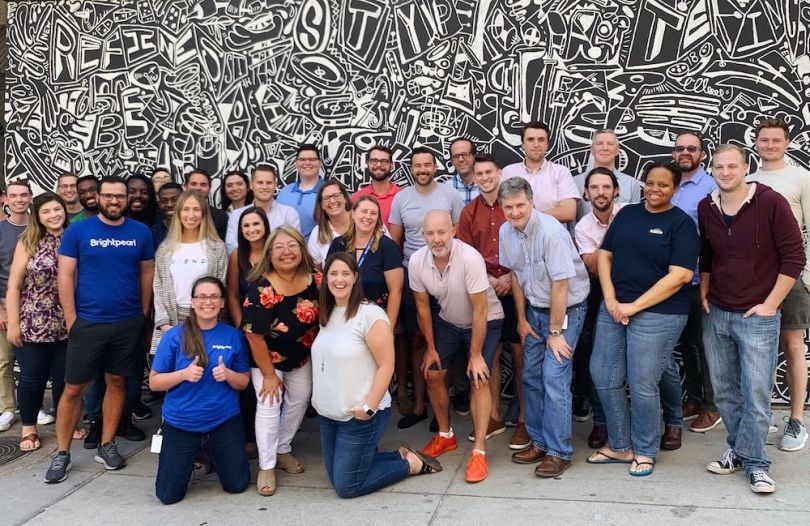
Tina Cancino’s career into tech wasn’t easy, but thanks to her persistence and passion for problem solving, she’s made her way. At Brightpearl, Cancino serves as a senior implementation consultant where she gets to regularly flex her solutions-oriented skillset.
Tell us a bit about your career journey. Why did you decide to pursue a career in tech?
I decided to pursue a career in tech to drive operational excellence leveraging cutting-edge technology. At first, it was very tough getting into IT. I started out as a developer and worked my way to a business analyst where I became a subject matter expert on various platforms across multiple cross-functional business teams.
As I moved into larger enterprise organizations, the technical skills became more prevalent, so naturally I ventured into the technical side. It’s the role of a project manager and business systems analyst where I leverage my technical skills to solution and implement a variety of different strategic solutions. It’s also how I became a great leader, trainer and architect for system integrations. This journey was not easy, but it is the perseverance that drove me to stay involved and up to date with all aspects of technology.
There’s nothing we cannot solve. That’s what makes me light up every day.”
What do you love most about your tech career? Any specific aspects of your job that really make you light up?
The most fulfilling aspect of working in tech is the desire to solve problems. It’s a passion like no other. The thrills of coming up with solutions for complex projects is what keeps me grounded at my current employer. We certainly have a lot of dynamics that make us all strive for excellence. That is what defines us as ‘Pearls.’ There’s nothing we cannot solve. That’s what makes me light up every day.
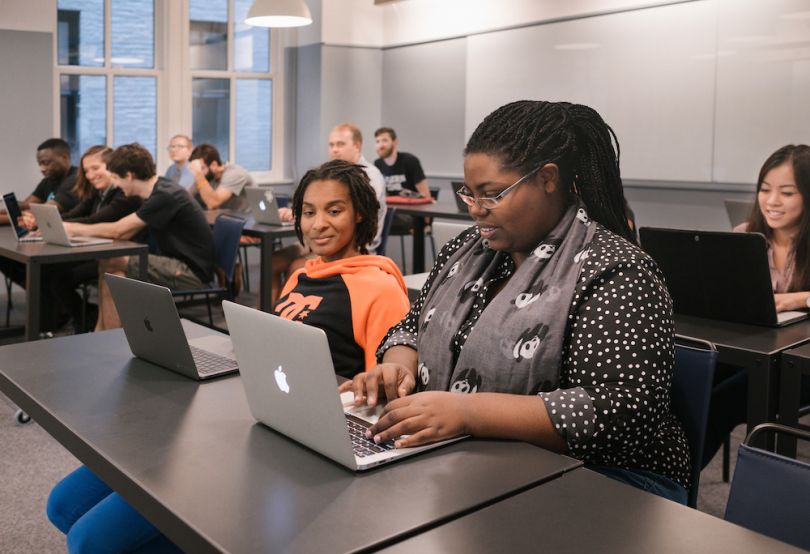
Lauren Bauml’s impressive career spans multiple industries and roles, but amid the differences lies one major similarity: mission. The Flatiron School’s Texas Director explained how seeking opportunities that serve the greater good has impacted her career path.
Tell us a bit about your career journey. Why did you decide to pursue a career in tech?
My career has been guided by mission and purpose. From aerospace and defense, to large-scale urban community developments, to higher education and technology, I am constantly in search of opportunities that have a sense of ‘we’ and ‘impact for all’ within them. Given how much time we spend at work, I want to ensure my efforts lead to the greater good.
There is no better opportunity to bridge the gap between educational and professional opportunities than in the field of technology. Every company is now a tech company in some form or fashion, and the field is dramatically shifting to encompass a more diverse and all-encompassing workforce.
...we are building a strong pipeline of workforce-ready talent that spans all ages, educational backgrounds, genders, races, and more... ”
What do you love most about your tech career? Any specific aspects of your job that really make you light up?
Access, access, access. Education and professional opportunity are society's two greatest equalizers and the team and I work every day to live our mission and ensure our student body reflects the incredible diversity of the Austin community. What that means for our students is that we are committed to reaching all Austinites, including those underserved communities, to build awareness and pathways of access. Once in the program, our students are able to collaborate with a diverse set of stakeholders, who represent a broad swath of backgrounds and walks of life. What that means for the Austin tech scene is that we are building a strong pipeline of workforce-ready talent that spans all ages, educational backgrounds, genders, races and more, hereby changing the landscape of our tech workforce.
